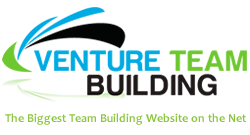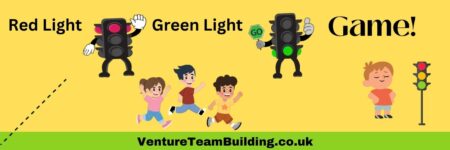Questions, questions, questions! The ability to ask and answer questions is central to training and development. For more than 2,000 years (since the days of Socrates) the question has been an integral part of teaching.
If you’re a trainer, an instructor, a manager, a project manager or you hold any leadership responsibility in an organisation, at some point you’ll be working with questions. This might be either you asking questions or your training participants or team members asking you questions.
Questioning style and content varies from trainer to trainer. The aim of this post is to help you understand the fundamentals on the subject of asking of questions and using questions effectively.
Here are the five most common questions used and some useful hints and tips for getting the most out of your workshop.
1. Open Question (also known as an Overhead Question)
Open questions allow the trainer to check understanding, help participants identify what has been learned and can also stimulate discussion.
An open question can be directed to either an individual or the entire group. This question is a much safer option to the other question types, as it doesn’t put anyone ‘on the spot’ and participant’s only answer if they feel comfortable to do so.
Open Question Examples:
- Can anyone share what they learned today?
- How can you use the skills you have learned in the workplace?
The opposite to an open question is a closed question. Closed questions are structured for either a ‘yes’ or ‘no’ answer or a brief explanation. When using closed questions, it can be harder to know whether participants have learned the content. Typically, when using a closed question, it should be immediately followed by an open question to expand on their understanding and knowledge.
Closed Question Examples:
- Closed: Did you learn anything today? (yes, or no answer).
- Open: Okay great, so what did you learn and how can you use this information in the workplace?
- Closed: Has anyone done a similar exercise before? (yes, or no answer).
- Open: Can you share with the rest of the group how you found the experience? What did you take away?
Post-Pause-Pick (the 3 P’s)
This is a question used to get participants to reflect on a question before answering. Ask a question, pause for a few seconds, and then call on someone by name to answer it. Adding a pause gives the participants time to think about their answer.
If someone can’t answer the question, just reflect it (open it up) to the rest of the group. Ask, ‘how about anyone else?’.
If you are using this question, pick someone who you know will be confident enough to share their answer with the rest of the group.
Post-Pause-Pick Example
- Post: I want you to think for a moment about a time when you have encountered a problem.
- Pause
- Pick: <name> can you share with the rest of the group your problem example.
Relay Questions
Similar to the 3 P’s, except instead of picking one person to answer the question everyone in the group shares their answer instead. Direct a question to the group, allow a moment to think of a response and then start at one side of the room and asks each person to answer the question in turn.
Relay Question Example:
- Post: I want you to name one thing you couldn’t live without?
- Pause
- Relay: Ask each person in turn to share their answer.
Reverse Questions
Reverse questions are questions that are used as a response to a direct question from a participant or the group. Instead of answering the question, you reverse the same back to the person who asked it. These questions can help participant’s gain further clarification of the original question and establish whether the participant already knows the answer or has their own thoughts on the subject or topic of discussion.
This question should be used with caution as it might put the participant ‘on the spot’. If they still can’t answer the question or don’t want to then you can either answer the question or use a reflection question (see below).
Reverse Question Example:
- A participant asks you, “Why is it important that we risk assess the training room before using it?”
- You should respond with: “Great question! Why do you think it’s important?”
Reflection Question
Another question which is used as a response to a direct question from a participant. When asked a question, you reflect the question and open it up to the rest of the group to answer. This is an excellent way to get other participants actively engaged in the discussion and to share their thoughts on the question.
Reflection Question Example:
- A participant asks you, “What are the benefits of organising a project team meeting?”
- You should respond with, “Good question! Would someone like to share their experience of working as part of a project group?”
Here are some of benefits of using questions:
- Encourages discussion and rapport building.
- Checks understanding and knowledge of the group.
- Develops interest and motivates participants to become actively involved.
- Develops critical thinking skills.
- Can be used to review and summarise previous sessions and learning outcomes.
- Assesses achievement of learning goals and objectives.
- Stimulates participants to pursue knowledge on their own.
Remember that good questions should be:
- Focussed (asked to achieve a specific aim or purpose)
- Clear and concise (participants understand what they mean)
- Stimulate thought (they should be thought-provoking and initiate response)
- Brief (stated in as few words as possible)
- Adapted to the level of the group (tailored to suit your groups learning objectives and knowledge)
Final tips for using questions:
- Plan questions that provide meaning and direction to the subject you are teaching.
- Include as many participants as possible into the discussion.
- Use questions to guide them in the right direction and let them discover knowledge and key points on their own.
- Follow up and build on the participant’s responses.
- Don’t be afraid of silence: Allow at least thirty seconds for participants to respond.
- If someone is struggling to answer a question. Provide them with clues and hints, rephrase the question or break the question down into smaller questions.
- Periodically summarise and recap key points that have discussed during the workshop.
To learn about Socratic questions, check out my Philosophy of Team Building post.




I have read so many articles on the topic but this is actually a nice article, keep it
up.
Glad you enjoyed it.
Thanks a lot.
You’re Welcome.